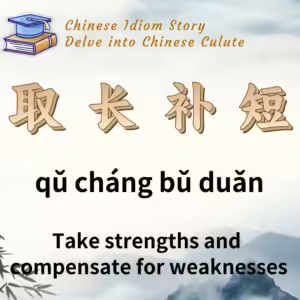
Chinese Idiom: 杯水车薪 (Bei Shui Che Qin)
English Translation: A Cup of Water for a Load of Firewood
pīn yīn: bēi shuǐ chē xīn
Idiom Meaning: This phrase is used to describe a situation where one’s efforts or resources are insufficient to address a problem, emphasizing that the help provided is minimal compared to what is needed.
Historical Source: Mencius (《孟子》), specifically from the chapter Gaozi I.
Idiom Story:
During the Warring States period, the philosopher Mencius traveled widely to promote his ideas on “benevolent governance” and the moral consciousness of people, emphasizing virtues like kindness, righteousness, propriety, and wisdom. While discussing the importance of benevolence, he remarked:
“Benevolence is the heart of a person, and righteousness is the path for people. To abandon the righteous path and ignore the benevolent heart is indeed a sorrowful matter!”
In one of his teachings on the benefits of benevolence, Mencius likened it to water extinguishing fire, saying:
“Benevolence prevails over non-benevolence, just as water prevails over fire. Today, those who act with benevolence are like trying to extinguish a load of burning firewood with just a cup of water. If the flames do not die down, one cannot claim that water is ineffective against fire. This is even worse than being non-benevolent, as the little benevolence they have will ultimately be lost.”
In this context, Mencius illustrated that attempting to combat significant issues with minimal efforts is futile. The phrase “a cup of water for a load of firewood” subsequently evolved into the idiom “杯水车薪,” conveying the idea that insufficient efforts cannot achieve meaningful results.






